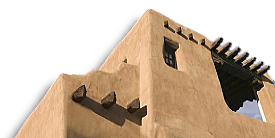

 |
CONTACTS
 |
Workshop on Non-Traditional Programming Models for High-Performance ComputingOrganizing Committee Computing hardware has been advancing at a remarkable rate. Multi-core chips and computational accelerators, such as GPUs, have enabled the construction of machines with massive amounts of computational power. Peta-scale supercomputers have been delivered and installed and exa-scale machines are on the drawing boards. Unfortunately, software tools for programming this hardware
have not advanced at equivalent rates. These large-scale computers
are still largely programmed using tools, languages, and techniques
that are decades old. This workshop is being held to address the
question: Can we apply non-traditional programming techniques,
perhaps from other application domains, to improve the
productivity, portability and performance of software for
large-scale scientific computing? Examples of non-traditional
techniques may include (but are not limited to) array-based languages,
"cloud" computing, functional languages, or domain specific
languages. The goals of the workshop are two-fold: 1) To begin to identify, specify and capture in writing, the problematic issues and barriers inherent in today's scientific software construction process. 2) To expose attendees to non-traditional programming models with the express purpose of igniting thought and discussion on the future of large-scale scientific programming. The one-day workshop will consist of two sequential sessions, each lead by a moderator/facilitator. The sessions will include a small number of speakers who will each present a short position paper outlining their thoughts on current problems and how specific non- traditional techniques may be applied to address these issues. The morning session will address issues related to transitioning existing codes to new architectures while the afternoon session will cover approaches for new codes and issues related to exa-scale computing. Following the presentations, the moderator will lead a discussion with the audience on the ideas presented by the speakers. Both the position papers and the captured discussion will be published on the workshop web site. It is our hope that the output of this workshop, perhaps refined, can act as input to a future meeting or workshop on this topic.
The output of the workshop will include: 1) Speaker position papers. 2) Synopsis of discussions amongst presenters and audience. 3) Summary of main issues and recommendations for future meeting or workshop. Please join us in beautiful Santa Fe to attend what we believe will be a stimulating and productive workshop. You may register at the LACSS site: http://www.lanl.gov/conferences/lacss/2009/ or contact the committee at: nontrad2009@lanl.gov.
|
Places to Visit in New Mexico |